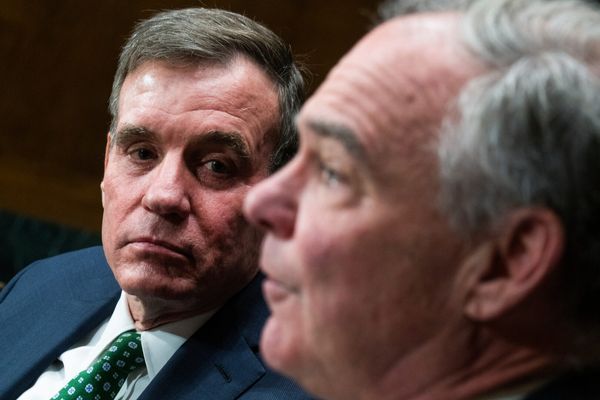
The White House said on Wednesday that another 15 million barrels of oil from the emergency reserve will be sold to combat volatility in crude oil and gasoline prices.
"With my announcement today, we're going to continue to stabilize markets and decrease the prices at a time when the actions of other countries have caused such volatility," President Joe Biden said at a White House event.
The Biden administration said the petroleum reserve has 400 million barrels of oil, which is more than half full and can withstand another drawdown. The reserve is at its lowest level since 1984 and the administration approved a record release of 180 million barrels earlier this year to avoid a supply crisis after sanctions were imposed on Russia.
The decision to release more oil was made about two weeks after OPEC agreed to a cut in the production of oil globally and took Russia's side.
The OPEC+ alliance agreed to lower its daily output by two million barrels on Oct. 5, the largest production cut since 2020.
The decision to lower production rates for November amounts to a 0.7-0.8 million barrel a day cut to “actual supply given that most member countries are already producing below their individual quota levels,” said Shin Kim, head of oil supply and production analytics, S&P Global Commodity Insights.
Political Move?
Some experts view Biden's choice as a political move ahead of midterm elections on Nov. 8. Gas prices serve as a barometer of inflation for many consumers since they encounter them every few days.
Gasoline prices reversed course recently after a 14-week decline.
The national average fell by $0.07 compared to a week ago and is selling for $3.87 a gallon, said Patrick De Haan, head of petroleum analysis, GasBuddy, a Boston-based provider of retail fuel pricing information and data.
There are five states with average gas prices falling by $0.20 a gallon from a week ago - California, Oregon, Wisconsin, Washington and Alaska, he said. Several other states have seen $0.10 weekly declines, including of Michigan, Nevada, Indiana, Ohio, Arizona, Illinois and Wyoming.
The White House should focus on the need for more refining capacity, especially since many refiners in the U.S. are older and in need of repairs, said De Haan.
Increasing the production of oil will not curb the issues of volatile oil prices and the focus should be on finding "incentives at boosting refining capacity- certainly more capacity means more breathing room for challenges, and lower prices," he tweeted. "It would help our prices and our allies."
The additional releases of oil from the emergency reserve will not impact the price of oil, De Haan said.
"Further SPR releases won't have a significant impact on oil prices," he tweeted. "However, further SPR sales certainty raise my concern level about energy security. Currently SPR levels aren't comfortable, but tolerable. If the SPR declined to under 300-350 million barrels, eesh."
The release of crude oil will "likely not help in lowering retail gasoline prices, or do so only marginally" and the policy is not sensible, Brian Milne, product manager, editor, and analyst at DTN, told MarketWatch.
Biden said the rapid rise of crude oil and gasoline prices began with Russia's invasion of Ukraine in February.
Since oil prices reached their peak, they have declined by 30% or $1.15 a gallon, Biden noted.
"Gas prices have come down, and they continue to come down again," he said. "They’re now down more than 27 cents a gallon in Wisconsin this past week, 27 cents in Oregon, 16 cents in Ohio, 25 cents in Nevada, 17 cents in — in Indiana in just the last 10 days."
The President also said U.S. oil companies and refiners along with retailers selling gasoline should invest in production from their record-setting profits instead of allocating the money to repurchase their stock.
When U.S. crude oil prices or West Texas Intermediate (WTI) reach $70 a barrel, Biden plans to begin to replenish reserve stocks since oil companies can generate a profit and the taxpayers can still afford to pay for gasoline. The U.S. benchmark price was trading at $85 on Wednesday.
$100 Oil Could Occur Soon
Goldman Sachs estimates that the price for Brent oil will likely reach $110 a barrel during the fourth quarter after the decision made by OPEC+ as inventories will decline.
"As we have long argued, the oil market’s buffers (stocks and spare capacity) remain critically low, and higher prices remain the key viable, long-term solution to increased inventories in the short-term and higher supply capacity medium-term," said Damien Courvalin, the head of energy research at Goldman Sachs. "This is consistent with our view that long-term shortages require short-term surpluses -with the market now instead facing large deficits in coming months."
Morgan Stanley said the lower production will push Brent crude oil prices back to $100 a barrel.
“Notwithstanding demand concerns, the combined impact of OPEC+’s production cut and the EU embargo in Russia’s production suggests a tighter oil market ahead,” Morgan Stanley analyst Martijn Rats wrote in a report. “With our tighter balances, we suspect that Brent will find its way to $100 a barrel quicker than we estimated before.







